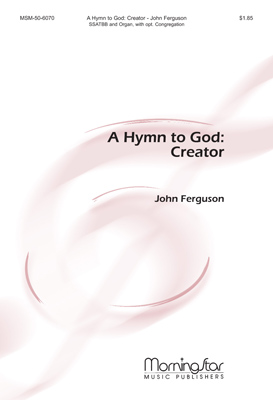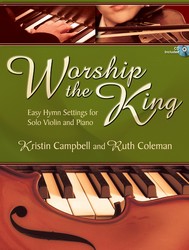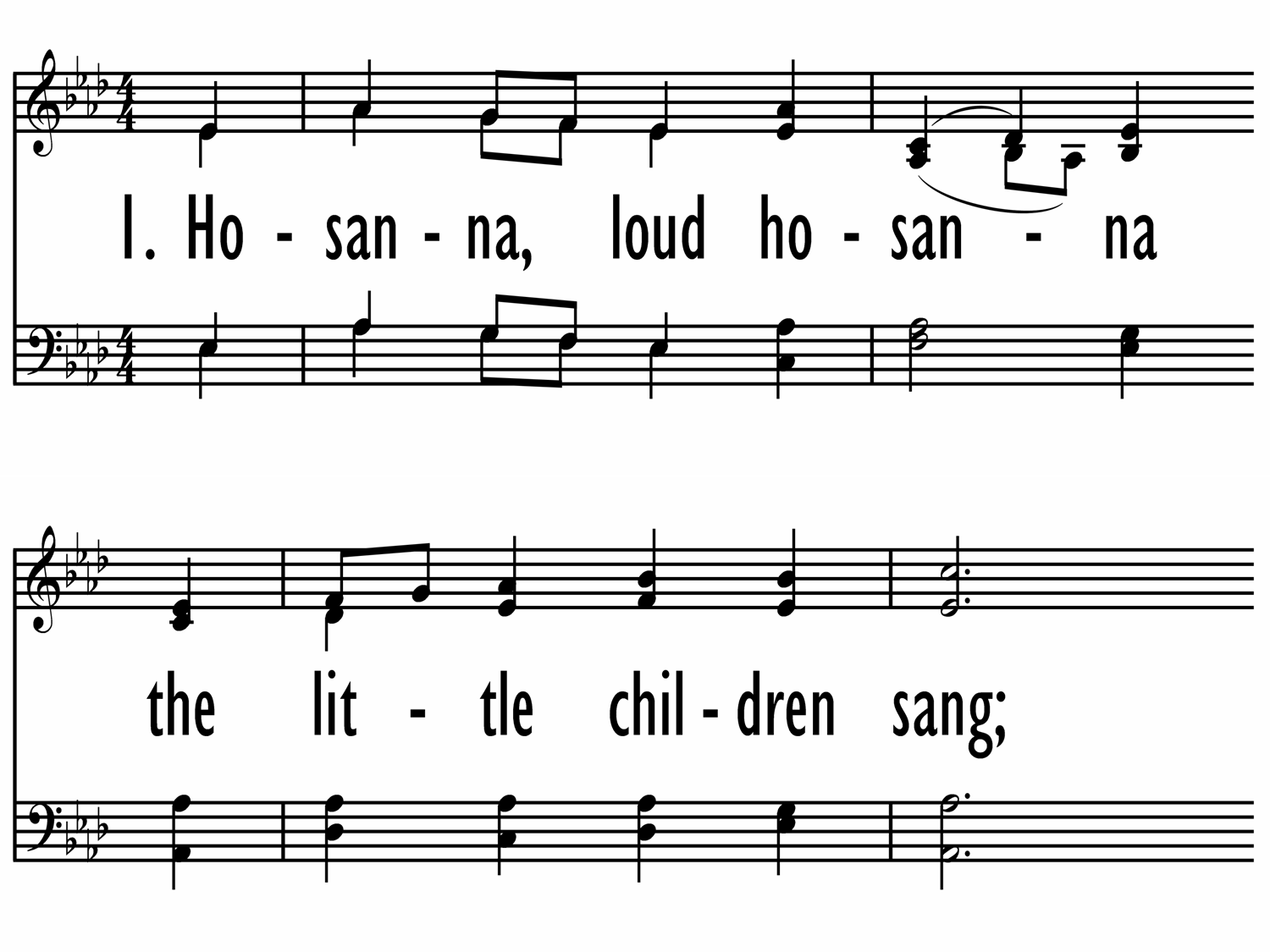- |
User Links
The roseate hues of early dawn

The roseate hues of early dawn
Author: Cecil Frances Alexander (1852)Tune: CASTLE RISING
Published in 140 hymnals
Printable scores: PDF, MusicXMLAudio files: MIDI
Representative Text
1 The roseate hues of early dawn,
The brightness of the day,
The crimson of the sunset sky,
How fast they fade away!
O for the pearly gates of heav'n!
O for the golden floor!
O for the Sun of Righteousness
That setteth nevermore!
2 The highest hopes we cherish here,
How fast they tire and faint!
How many a spot defiles the robe
That wraps an earthly saint!
O for a heart that never sins!
O for a soul washed white!
O for a voice to praise our King,
Nor weary day or night!
3 Here faith is ours, and heavenly hopes,
And grace to lead us higher:
But there are perfectness and peace
Beyond our great desire.
O by Thy love and anguish, Lord,
O by Thy life laid down,
O that we fall not from Thy grace,
Nor cast away our crown!
Amen.
Source: The Hymnal and Order of Service #513
Author: Cecil Frances Alexander
 As a small girl, Cecil Frances Humphries (b. Redcross, County Wicklow, Ireland, 1818; Londonderry, Ireland, 1895) wrote poetry in her school's journal. In 1850 she married Rev. William Alexander, who later became the Anglican primate (chief bishop) of Ireland. She showed her concern for disadvantaged people by traveling many miles each day to visit the sick and the poor, providing food, warm clothes, and medical supplies. She and her sister also founded a school for the deaf. Alexander was strongly influenced by the Oxford Movement and by John Keble's Christian Year. Her first book of poetry, Verses for Seasons, was a "Christian Year" for children. She wrote hymns based on the Apostles' Creed, baptism, the Lord's Supper, the Ten Commandment… Go to person page >
As a small girl, Cecil Frances Humphries (b. Redcross, County Wicklow, Ireland, 1818; Londonderry, Ireland, 1895) wrote poetry in her school's journal. In 1850 she married Rev. William Alexander, who later became the Anglican primate (chief bishop) of Ireland. She showed her concern for disadvantaged people by traveling many miles each day to visit the sick and the poor, providing food, warm clothes, and medical supplies. She and her sister also founded a school for the deaf. Alexander was strongly influenced by the Oxford Movement and by John Keble's Christian Year. Her first book of poetry, Verses for Seasons, was a "Christian Year" for children. She wrote hymns based on the Apostles' Creed, baptism, the Lord's Supper, the Ten Commandment… Go to person page >Text Information
| First Line: | The roseate hues of early dawn |
| Author: | Cecil Frances Alexander (1852) |
| Meter: | 8.6.8.6 D |
| Language: | English |
| Copyright: | Public Domain |
Notes
The roseate hues of early dawn. Cecil F. Alexander, née Humphreys. [Evening.] Mrs. Alexander has published this hymn in two forms as follows:—
1. The first form appeared in the Society for Promoting Christian Knowledge Hymns, 1852, No. 155, as:—
"The roseate hues of early dawn,
The brightness of the day,
The crimson of the sunset sky,
How fast they fade away!
Oh! for the pearly gates of heaven,
Oh! for the golden floor,
Oh! for the Sun of Righteousness,
That setteth nevermore!"The highest hopes we cherish here,
How fast they tire and faint!
How many a spot defiles the robe
That wraps an earthly saint!
Oh! for a heart that never sins,
Oh! for a soul washed white,
Oh! for a voice to praise our King,
Nor weary day or night."Here faith is ours, and heavenly hope,
And grace to lead us higher;
But there are perfectness and peace,
Beyond our best desire.
Oh! by thy love, and anguish, Lord!
Oh! by thy life laid down!
Oh! that we fall not from thy grace,
Nor cast away our crown."
This text was repeated in Mrs. Alexander's Legend of the Golden Prayers, &c, 1859, p. 139; and is also found in a large number of hymn-books in Great Britain and America, including Hymns Ancient & Modern, the S. P. C. K. Church Hymns, Turing's Collection, the Hymnal Companion, and others. Sometimes stanzas ii., line 8, reads "Nor weary day nor night/' as in Hymns Ancient & Modern. In some collections the hymn opens with stanzas i. 1ine 5, "O! for the pearly gates of heaven” and in others with stanzas ii., "The highest hopes we cherish here." In Biggs's annotated edition of Hymns Ancient & Modern, 1867, the full text is rendered into Latin by Lord Lyttelton (1866), as, "Aurorae roseus primigenae color."
2. Mrs. Alexander's recast of this hymn appeared in her Hymns Descriptive and Devotional. For the Use of Schools, 1858, No. iv., as:—
The crimson of the sunset sky,
The last gold lines of day
Along the mountain's rosy verge
How fast they fade away!
O for the pearly gates of Heaven,
O for the golden floor;
O for the Sun of Righteousness
That setteth nevermore."The lark that soar’d so high at dawn
On weary wing lies low,
The flowers so fragrant all day long
Are dead or folded now.
0 for the songs that never cease
Where saints to angels call,
0 for the tree of life that stands
By the pure river's fall."O'er the dull ocean broods the night
And all the strand is dark,
Save where a line of broken foam
Lies at low water mark.
0 for the land that needs no light,
Where never night shall be;
0 for the quiet home in Heaven,
Where there is no more sea.“The highest hopes we cherish here,
How fast they tire and faint,
How many a spot defiles the robe
That wraps an earthly saint!
O for a heart that never sins,
O for a soul wash'd white;
O for a voice to praise our King,
Nor weary day or night."
In this recast it will be noticed that the portions in italics are from the original text. Taken as a whole the recast is more poetical but less adapted for public worship than the original. Its use is limited.
--John Julian, Dictionary of Hymnology (1907)
Timeline
Arrangements
Media
The Book of Common Praise: being the hymn book of The Church of England in Canada (revised 1938) #531b
- MusicXML (XML)


 My Starred Hymns
My Starred Hymns






